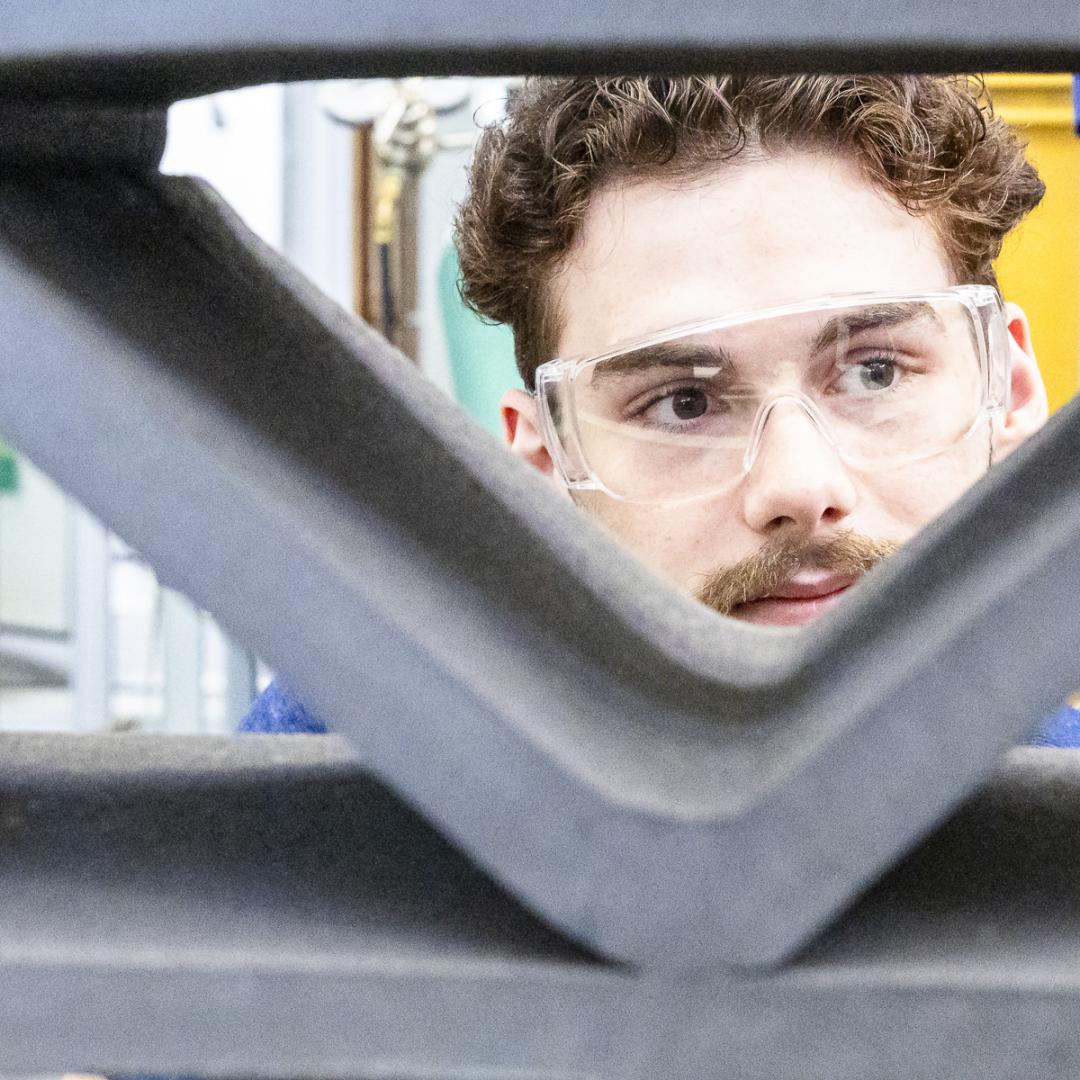Filter News
Area of Research
- Advanced Manufacturing (7)
- Biology and Environment (24)
- Clean Energy (43)
- Electricity and Smart Grid (1)
- Functional Materials for Energy (2)
- Fusion and Fission (8)
- Fusion Energy (8)
- Isotopes (24)
- Materials (82)
- Materials Characterization (2)
- Materials for Computing (11)
- Materials Under Extremes (1)
- National Security (4)
- Neutron Science (16)
- Nuclear Science and Technology (16)
- Nuclear Systems Modeling, Simulation and Validation (1)
- Supercomputing (18)
News Topics
- (-) Advanced Reactors (34)
- (-) Biotechnology (22)
- (-) Isotopes (51)
- (-) Materials (143)
- 3-D Printing/Advanced Manufacturing (119)
- Artificial Intelligence (91)
- Big Data (51)
- Bioenergy (91)
- Biology (98)
- Biomedical (58)
- Buildings (56)
- Chemical Sciences (62)
- Clean Water (29)
- Climate Change (98)
- Composites (26)
- Computer Science (185)
- Coronavirus (46)
- Critical Materials (25)
- Cybersecurity (35)
- Decarbonization (78)
- Education (4)
- Element Discovery (1)
- Emergency (2)
- Energy Storage (108)
- Environment (194)
- Exascale Computing (37)
- Fossil Energy (5)
- Frontier (42)
- Fusion (53)
- Grid (61)
- High-Performance Computing (84)
- Hydropower (11)
- Irradiation (3)
- ITER (7)
- Machine Learning (47)
- Materials Science (138)
- Mathematics (7)
- Mercury (12)
- Microelectronics (2)
- Microscopy (51)
- Molten Salt (8)
- Nanotechnology (60)
- National Security (60)
- Net Zero (13)
- Neutron Science (130)
- Nuclear Energy (105)
- Partnerships (41)
- Physics (59)
- Polymers (33)
- Quantum Computing (32)
- Quantum Science (67)
- Renewable Energy (2)
- Security (24)
- Simulation (45)
- Software (1)
- Space Exploration (25)
- Statistics (3)
- Summit (57)
- Sustainable Energy (124)
- Transformational Challenge Reactor (7)
- Transportation (95)
Media Contacts
The United States could triple its current bioeconomy by producing more than 1 billion tons per year of plant-based biomass for renewable fuels, while meeting projected demands for food, feed, fiber, conventional forest products and exports, according to the DOE’s latest Billion-Ton Report led by ORNL.
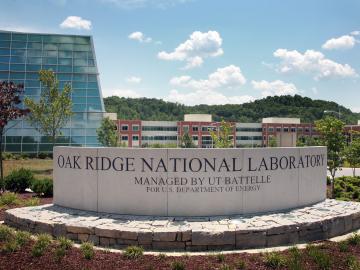
Two different teams that included Oak Ridge National Laboratory employees were honored Feb. 20 with Secretary’s Honor Achievement Awards from the Department of Energy. This is DOE's highest form of employee recognition.
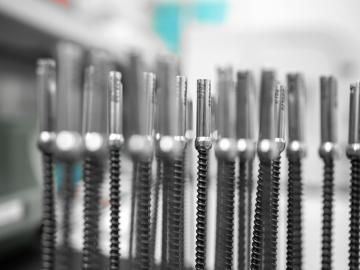
A key industrial isotope, iridium-192, has not been produced in the U.S. in almost 20 years. DOE's Isotope Program and QSA Global Inc. announced a joint product development agreement to initiate U.S. production of iridium-192.
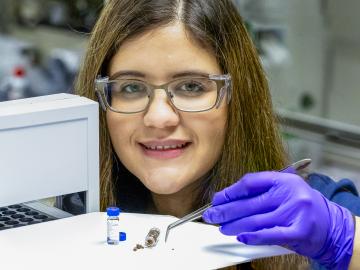
Ilenne Del Valle is merging her expertise in synthetic biology and environmental science to develop new technologies to help scientists better understand and engineer ecosystems for climate resilience.
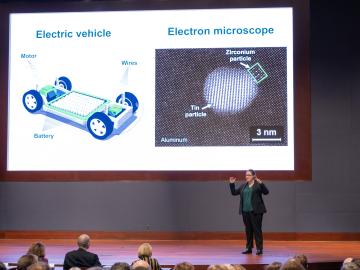
ORNL’s Janet Meier won the Energy Security category of the U.S. Department of Energy’s inaugural National Lab Research SLAM on Capitol Hill.

Rigoberto “Gobet” Advincula, a scientist at the Department of Energy’s Oak Ridge National Laboratory, has been appointed a Fellow of the Institute of Materials, Minerals and Mining.
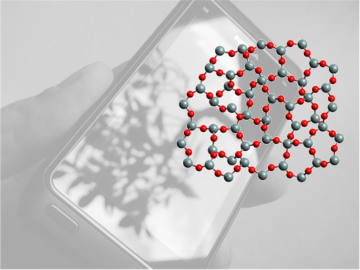
Corning uses neutron scattering to study the stability of different types of glass. Recently, researchers for the company have found that understanding the stability of the rings of atoms in glass materials can help predict the performance of glass products.
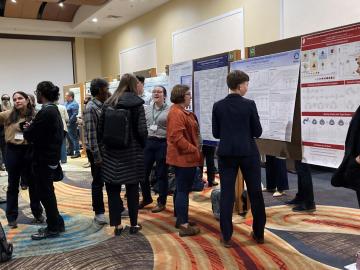
The 21st Symposium on Separation Science and Technology for Energy Applications, Oct. 23-26 at the Embassy Suites by Hilton West in Knoxville, attracted 109 researchers, including some from Austria and the Czech Republic. Besides attending many technical sessions, they had the opportunity to tour the Graphite Reactor, High Flux Isotope Reactor and both supercomputers at ORNL.
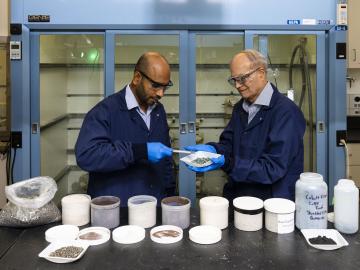
Scientists at ORNL have developed a technique for recovering and recycling critical materials that has garnered special recognition from a peer-reviewed materials journal and received a new phase of funding for research and development.

Rigoberto “Gobet” Advincula, a scientist at the Department of Energy’s Oak Ridge National Laboratory, has been named a 2023 Fellow of the National Academy of Inventors. Advincula has been recognized for his 14 patents and 21 published filings related to nanomaterials, smart coatings and films, solid-state device fabrication and chemical additives.



